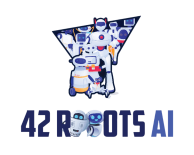What is GPT-4?
Good video in response to that question:
Is GPT-4 available to public?
Yes, GPT-4 is available for the public to use via ChatGPT Plus ($20/m).

Can I use GPT-4 for free?
No, currently, there is no way to access GPT-4 directly for free. There are, however, some indirect ways to access GPT-4 for free. The places where this is available changes frequently, so we will not link directly. We suggest you Google something like, “GPT-4 Free access.”
What can GPT-4 do?
Enhanced language understanding:
GPT-4 could demonstrate even better context understanding, allowing it to generate more coherent, contextually relevant, and grammatically accurate text than GPT-3.
Improved few-shot learning:
Building on GPT-3’s few-shot learning capabilities, GPT-4 might require even fewer examples to understand and adapt to new tasks, leading to more efficient fine-tuning and adaptation.
Task versatility:
GPT-4 could be capable of tackling a broader range of tasks with higher accuracy, such as summarization, translation, question-answering, code generation, sentiment analysis, and more.
Longer context retention:
GPT-4 might be able to handle longer text passages more effectively, leading to better performance in tasks that require understanding and manipulating extensive context.
Enhanced commonsense reasoning:
GPT-4 could exhibit improved commonsense reasoning and inference capabilities, which would enable it to generate more plausible and sensible responses in a variety of situations.
Reduced biases:
GPT-4 might benefit from continued research in AI ethics, leading to reduced biases in its responses and a better understanding of contextually appropriate language.
It’s important to note that this is speculative and based on the progress observed in the GPT series and AI research in general. The actual capabilities of GPT-4, if and when it is developed, might differ from these predictions.
For OpenAI’s image model, checkout DALL-E 2.
Will GPT-4 replace programmers?
It is unlikely that GPT-4, or any AI-driven language model in the near future, would completely replace programmers.
While advanced language models could assist programmers by automating repetitive tasks, providing code suggestions, and aiding in debugging, there are several reasons why they are unlikely to replace human programmers:
Human expertise and creativity:
AI models may provide support and suggestions, but they cannot replace the creativity, critical thinking, and problem-solving skills that human programmers possess. Innovative solutions often require human intuition and expertise that AI models have not yet been able to replicate.
Complex projects:
AI-generated code snippets can be helpful for simple tasks, but complex projects require a deep understanding of the problem domain, system architecture, and trade-offs involved in design decisions. Human programmers have the ability to plan, strategize, and adapt to the unique challenges posed by intricate projects, which AI models are not yet capable of handling.
Collaboration and communication:
Effective software development often involves working closely with other professionals, such as product managers, designers, and other stakeholders. Programmers need to communicate effectively and collaborate on various aspects of a project, which is a skill set that AI models currently lack.
Limitations in AI understanding:
Although advanced language models like GPT-3 have made significant progress in language understanding, they still have limitations in terms of context understanding and may not always provide accurate or appropriate suggestions. Human programmers are better equipped to discern when a solution is viable or when further refinement is needed.
In conclusion, while GPT-4 model might serve as a valuable tool to assist programmers, it is unlikely to replace human programmers entirely. Instead, AI models will likely complement the work of programmers, allowing them to focus on more creative and strategic aspects of software development.
Will there be a GPT-5?
While Sam Altman recently said they aren’t currently training GPT-5, it certainly seems like creating GPT-5 is part of OpenAI’s long term objectives.

